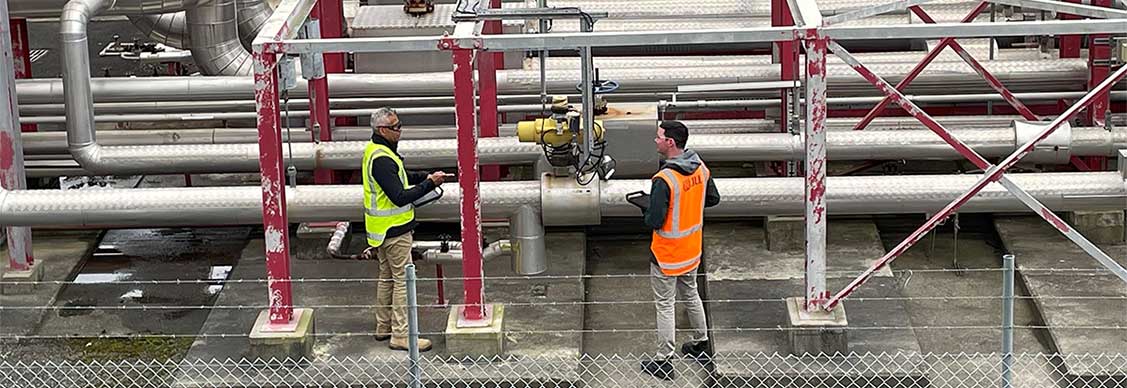5 benefits of specialised valuations for plant and equipment
Property depreciation and purchase price allocation for plant and equipment assets explained
If you’re buying or selling a property or business, you’ll know that commercial asset valuations are an integral step in the transaction process. However, since new tax rules were introduced in 2021, market awareness of purchase price allocations (PPA), in the context of plant and equipment, is still varied. When PPA is misunderstood, it can have significant consequences on your ongoing tax liabilities, among other challenges.
What is Purchase Price Allocation?
Notwithstanding your industry, an accurate and fair purchase price needs to be assigned to all plant and equipment assets; a process referred to as a purchase price allocation or purchase cost allocation.
From office, industrial, and hospitality, to engineering and construction, plant and equipment assets are utilised across all sectors. As these assets can depreciate faster than others, they call for regular, more complex professional valuations.
The (not so) new rules
Updated tax rules that apply to the sale of commercial assets have been in effect since July 2021. So, what’s changed? Instead of purchasers and sellers taking their own position on tax values, the amended act requires both parties to agree to the PPA in writing and duplicate these values in their tax returns. These allocation rules are now obligatory for the sale and purchase of mixed supplies with a purchase price of $1,000,000 (including GST) or higher. Previously, there was no legislative requirement for parties to adopt the same allocation.
In the event a PPA is not agreed upon, the vendor has the first right to decide the asset value. In that scenario, the vendor has three months following the change in ownership of the assets to notify the purchaser and Inland Revenue of the PPA.
Why is it important?
“In most instances, when the value of plant and equipment is not accurately determined, the purchaser in a transaction is most commonly disadvantaged,” says Tony Pratt, Head of Plant, Equipment, & Infrastructure Valuation Advisory at JLL NZ.
Below are just a few reasons why valuing plant and equipment accurately is essential to your business.
Looking for more insights? Never miss an update.
The latest news, insights and opportunities from global commercial real estate markets straight to your inbox.
1. Negative tax outcomes
Increased exposure to tax risk is the key issue that arises for purchasers, due to the seller allocating values in the interest of reducing their own tax liability. These competing interests can lead to a purchaser’s future depreciation deductions, and corresponding tax savings, being more restricted. Often, this is a circumstance not realised until it’s too late. Not complying with these rules can lead to future penalties.
“It’s typically when clients are audited 3-5 years following their transactions that they’re consequently caught out and lumped with big tax bills,” explains Tony.
2. Financial reporting
An inaccurate PPA value can also have a material impact on reported earnings in future periods.
“This can affect market valuations, lending, insurance, and the sale of said assets down the line,” Tony adds. “A PPA ensures the accurate reporting of the acquired company's assets and liabilities on the purchaser’s financial statements. This information is crucial for investors, stakeholders, and regulatory bodies to evaluate the economic worthiness of the assets and financial outcome of the acquisition.”
3. Future planning
Do you know how long you can keep using your machinery before it will require repairs? A PPA can help. It’s a useful tool for estimating the remaining useful life of plant and equipment assets. Ascertaining this can help buyers plan for maintenance expenses, reducing the asset’s downtime and improving efficiency.
4. Risk management
Being proactive about risk management is critical to maintaining business as usual. With a valuation for your plant and machinery, you can see potential financial and logistical risks and learn how to minimise them. In an uncertain economic climate, managing risk is top of mind for any executive team.
5. Transaction delays
The transaction process can be time-consuming and tedious for both the buyer and the seller. Time is always of the essence and unforeseen delays frustrate all parties involved and could jeopardise the sale. A drawn-out transaction can also lead to mounting service costs such as deal advisors, lawyers, and accountants. A definitive PPA is just one of the ways to avoid surprises late in the piece.
Investment Opportunities
The bottom line
The challenges that can arise from an incorrect valuation highlight the importance of seeking independent, professional valuation advice early in the transaction cycle.
Alongside the expertise of a global network and 35 years of local experience, JLL has New Zealand’s largest team of specialist plant and machinery valuers. This specific knowledge ensures all valuations and assumptions are representative of the industry, competition, and market conditions.
As one of the leading valuation firms, JLL can assess and determine fair PPAs and help you to understand all of the conflicting interests and tax implications pertaining specifically to plant and equipment acquisitions.
Hot off the press
Regardless of the outcome of the upcoming national election later in 2023, it appears both major parties are intent on rolling back the tax changes to commercial properties introduced as part of the COVID response measures. This means no further depreciation of the building structure, making it critical that you maximise your tax benefits by correctly identifying the market values of your plant, equipment, and fitout.
Contact Tony Pratt
Head of Plant, Equipment and InfrastructureWhat’s your investment ambition?
Uncover opportunities and capital sources all over the world and discover how we can help you achieve your investment goals.
